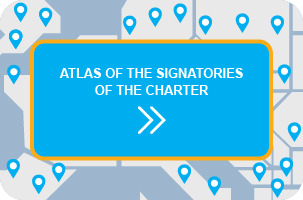Gender Mainstreaming in local authorities
UN Habitat published in 2008 a folder on best practices in Gender Mainstreaming in local authorities with examples from a variety of countries such as Brazil, Costa Rica, South Africa, the Philippines and Austria.
The publication draws the following conclusions of what is needed for successful implementation of local initiatives to favour gender equality:
– Political will is crucial in order to reach the desired outcomes
– Political will must be complemented by strategies such as action plans, capacity building and training, the needed financial resources as well as monitoring instruments – tools which contributes to facilitating an institutionalisation of gender equality
– Targeted actions aimed to empower women and meet women’s specific needs in terms of socio-economic disadvantages etc.
– Targeted actions must go hand in hand with gender mainstreaming activities
– Quota systems are necessary in many countries to combat an unequal distribution of power
– Campaigns to raise awareness on the significance of gender mainstreaming and gender equality polices both among municipal staff and among citizens
– Involving external stakeholders such as civil society groups, women’s organisations and NGOs
– Implementing gender budgeting as a mean to ensure equal distribution of resources
– International cooperation and share of good practices, by sharing knowledge and information local authorities can learn from each other. In fact it is stated that many of the best practices have been facilitated by international conventions, declarations and road maps.
– Initiatives to favour work-life balance some of the best practices mention work-life balance; women tend to benefit more from certain services such as child-care and flexible working hours. These types of initiatives also seem to increase men’s participation in family life and domestic tasks.
– Involving citizens in the planning, implementation and evaluation. In this work, gender-disaggregated data is necessary as well as indicators.
The publication also presents European Charter for Equality as a good example for promoting equality initiatives at local and regional level.
To access the full publication please click on the following link.













